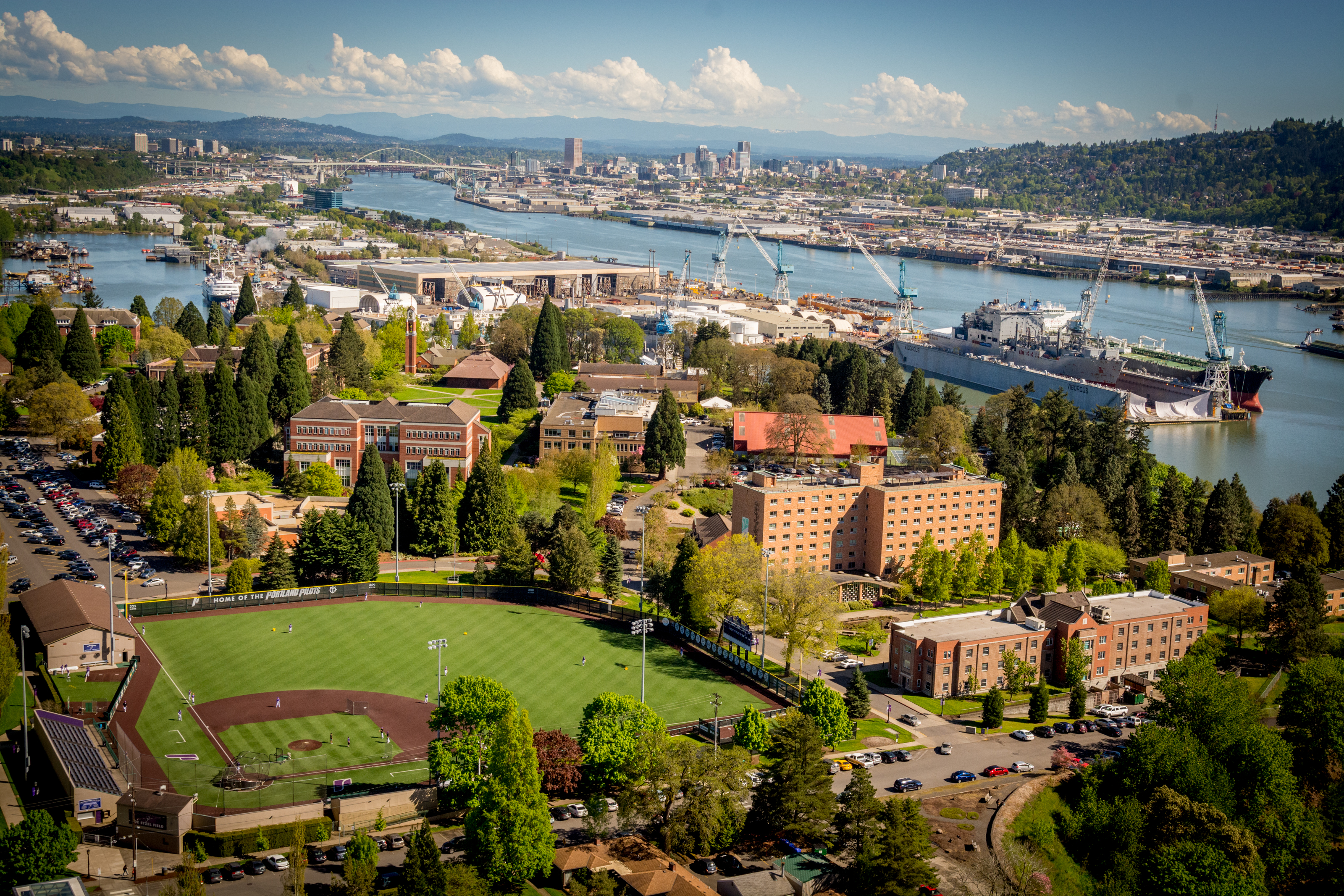
Undergraduate Research | Experiential Learning | Selected Publications and Presentations by Undergraduate Student Co-Authors
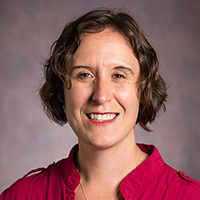 In partnership with UP's Public Research Fellows Program, Where is Home? A Digital Living Newspaper was a devised piece of theatre which was conceived and built collaboratively by Dr. Lezlie Cross and a team of student actors, researchers, stage managers, and designers. Inspired by the living newspapers of the depression-era Federal Theatre Project, the piece confronted historic and current housing inequity in Portland. Adapting the basic tenets of devised theatre to a digital environment, this innovative documentary production guided audiences through the issues, a discussion and, we hope, action in their own communities. The show was performed live via Zoom on November 13 and 14, 2020. Recordings of the two performances are available here: Friday and Saturday. Audience members were also invited to explore the show website, which includes information about the process, the show bibliography, and insight into the ensemble.
In partnership with UP's Public Research Fellows Program, Where is Home? A Digital Living Newspaper was a devised piece of theatre which was conceived and built collaboratively by Dr. Lezlie Cross and a team of student actors, researchers, stage managers, and designers. Inspired by the living newspapers of the depression-era Federal Theatre Project, the piece confronted historic and current housing inequity in Portland. Adapting the basic tenets of devised theatre to a digital environment, this innovative documentary production guided audiences through the issues, a discussion and, we hope, action in their own communities. The show was performed live via Zoom on November 13 and 14, 2020. Recordings of the two performances are available here: Friday and Saturday. Audience members were also invited to explore the show website, which includes information about the process, the show bibliography, and insight into the ensemble.
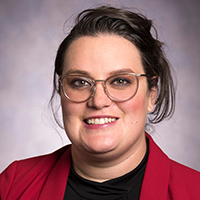 Between May and July 2020, Dr. Lara-Zuzan Golesorkhi and three researchers conducted ethnographic research on COVID-19’s impact on refugee women’s livelihoods in Portland (OR). This included interviews with fifteen refugee women and representatives of organizations working in the context of migration. The group complemented these interviews with online observations of community efforts that provide essential services to refugees. Based on the interviews and observations, the team found that refugee women’s livelihoods have been impacted by the COVID-19 pandemic in various specific ways: from losing jobs and healthcare to becoming essential workers and assuming additional caretaker roles, to finding oneself again in unprecedented situations of limited mobility and social isolation. These impacts have been informed by restricted access to resources and services, lack of information about resources and services, and paramount fear due to ever-changing policy. Since the project emerged as a community-based/informed practice based on our positions at the Center for Migration, Gender, and Justice, we are also preparing a practitioner/field report for a Special Issue on “Migration, Asylum and Refuge during a Global Pandemic: Perspectives of Migrants, Researchers and Practitioners” in Refugee Review (accepted for publication). We have presented our research findings at various international conferences, including at an official side event of the United Nations High-Level Political Forum and the week-long World Health Organization seminar series, "The health of refugees and migrants: Ensuring accessibility, promoting health, and saving lives,” at which Dr. Golesorkhi was a panelist.
Between May and July 2020, Dr. Lara-Zuzan Golesorkhi and three researchers conducted ethnographic research on COVID-19’s impact on refugee women’s livelihoods in Portland (OR). This included interviews with fifteen refugee women and representatives of organizations working in the context of migration. The group complemented these interviews with online observations of community efforts that provide essential services to refugees. Based on the interviews and observations, the team found that refugee women’s livelihoods have been impacted by the COVID-19 pandemic in various specific ways: from losing jobs and healthcare to becoming essential workers and assuming additional caretaker roles, to finding oneself again in unprecedented situations of limited mobility and social isolation. These impacts have been informed by restricted access to resources and services, lack of information about resources and services, and paramount fear due to ever-changing policy. Since the project emerged as a community-based/informed practice based on our positions at the Center for Migration, Gender, and Justice, we are also preparing a practitioner/field report for a Special Issue on “Migration, Asylum and Refuge during a Global Pandemic: Perspectives of Migrants, Researchers and Practitioners” in Refugee Review (accepted for publication). We have presented our research findings at various international conferences, including at an official side event of the United Nations High-Level Political Forum and the week-long World Health Organization seminar series, "The health of refugees and migrants: Ensuring accessibility, promoting health, and saving lives,” at which Dr. Golesorkhi was a panelist.
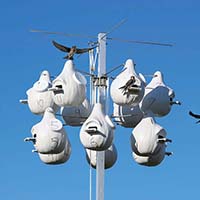 Important and vital research is taking place on UP’s River Campus. Drs. Katie O’Reilly (Biology) and Laurie Dizney (Biology) are currently working to restore native species to the area, including purple martins and milkweed, respectively. In addition, their colleague Dr. Buck Taylor (Chemistry) is collaborating with faculty from UP’s Shiley School of Engineering to reduce microplastic pollution from runoff in urban watersheds utilizing the River Campus as a field site. All of these faculty engage undergraduate research students in all aspects of their research projects, giving students hands-on experience leading to deep learning.
Important and vital research is taking place on UP’s River Campus. Drs. Katie O’Reilly (Biology) and Laurie Dizney (Biology) are currently working to restore native species to the area, including purple martins and milkweed, respectively. In addition, their colleague Dr. Buck Taylor (Chemistry) is collaborating with faculty from UP’s Shiley School of Engineering to reduce microplastic pollution from runoff in urban watersheds utilizing the River Campus as a field site. All of these faculty engage undergraduate research students in all aspects of their research projects, giving students hands-on experience leading to deep learning.
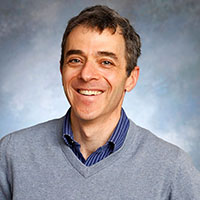 For our SURE project, students Joshua Henderson and Catherine Wojda and professor of Spanish Matthew Warshawsky read, discussed, and prepared an article about Espejo fiel de vidas (Life’s True Mirror), published in 1720 by Daniel Israel López Laguna. Our goal was to study this text as an example of Baroque Spanish poetry that reworks the book of Psalms for an audience that like the author were conversos, or New Christians, that is, Spanish and Portuguese Catholics of Jewish origin and their descendants. Likewise, we studied the geographic and spiritual journey of López Laguna himself through the Hispano-Portuguese Jewish diaspora, specifically Jamaica, where he became a practicing Jew. Besides showing elements of this journey in López Laguna’s paraphrase of Psalms, the project explored how the poet incorporates features of Christian Baroque Spanish into his text. As a result, it positioned López Laguna as a Jewish and Spanish author in ways that never seem incongruous, despite the exclusion of Jews from Spain and Portugal during the nearly two centuries before he wrote the poem. The result of our work together was a jointly written essay entitled “‘Mi amparo y Fortaleza’: Seeing Psalms through a Trans-Iberian Worldview in Espejo fiel de vidas (Life’s True Mirror).” Our analysis of specific passages of this work shows how López Laguna navigates a hybrid worldview reflective of his years living first as a New Christian and subsequently as a “New Jew.” We accompany the poet on this journey by situating Espejo fiel within his lived experiences; connecting the poem to trends of converso and Baroque Spanish literature; and discussing how the spiritual wandering, or peregrinaje, and Inquisitorial consciousness that permeate the text represent the converso condition.
For our SURE project, students Joshua Henderson and Catherine Wojda and professor of Spanish Matthew Warshawsky read, discussed, and prepared an article about Espejo fiel de vidas (Life’s True Mirror), published in 1720 by Daniel Israel López Laguna. Our goal was to study this text as an example of Baroque Spanish poetry that reworks the book of Psalms for an audience that like the author were conversos, or New Christians, that is, Spanish and Portuguese Catholics of Jewish origin and their descendants. Likewise, we studied the geographic and spiritual journey of López Laguna himself through the Hispano-Portuguese Jewish diaspora, specifically Jamaica, where he became a practicing Jew. Besides showing elements of this journey in López Laguna’s paraphrase of Psalms, the project explored how the poet incorporates features of Christian Baroque Spanish into his text. As a result, it positioned López Laguna as a Jewish and Spanish author in ways that never seem incongruous, despite the exclusion of Jews from Spain and Portugal during the nearly two centuries before he wrote the poem. The result of our work together was a jointly written essay entitled “‘Mi amparo y Fortaleza’: Seeing Psalms through a Trans-Iberian Worldview in Espejo fiel de vidas (Life’s True Mirror).” Our analysis of specific passages of this work shows how López Laguna navigates a hybrid worldview reflective of his years living first as a New Christian and subsequently as a “New Jew.” We accompany the poet on this journey by situating Espejo fiel within his lived experiences; connecting the poem to trends of converso and Baroque Spanish literature; and discussing how the spiritual wandering, or peregrinaje, and Inquisitorial consciousness that permeate the text represent the converso condition.
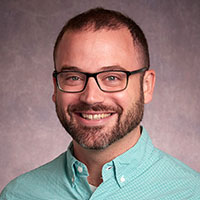 Dave Wynne (Biology) was awarded a New Investigator Grant from the Medical Research Foundation of Oregon to study proteins that regulate how cells divide. This work helps scientists and clinicians better understand how chemotherapy drugs function, which holds the potential to help maximum their effectiveness. Undergraduate research students are engaged in all aspects of the work, including designing experiments, using modern genetic engineering techniques and microscopes, and disseminating the findings, such as Amy Moore's '20 first-place poster for undergraduate research at the 2020 Oregon Academy of Science Student Research Symposium.
Dave Wynne (Biology) was awarded a New Investigator Grant from the Medical Research Foundation of Oregon to study proteins that regulate how cells divide. This work helps scientists and clinicians better understand how chemotherapy drugs function, which holds the potential to help maximum their effectiveness. Undergraduate research students are engaged in all aspects of the work, including designing experiments, using modern genetic engineering techniques and microscopes, and disseminating the findings, such as Amy Moore's '20 first-place poster for undergraduate research at the 2020 Oregon Academy of Science Student Research Symposium.
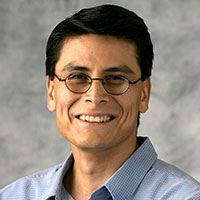 In the summer of 2020, Alejandro Santana worked with two students, Carolina Cortes and Sophie Downing, and studied texts in Latinx and Native American Philosophy related to the individual topic we chose. Carolina Cortes wrote a paper on Indigenous/Latinx views on Migration and Borders. She read texts by experts in the philosophy of immigration like Andzaldua, Mendoza, Orosco, Alex Sager, and von Vocano. Sophie Downing wrote a paper in the Native American/Latinx views on Diversity. She read texts by experts in Latinx and Native American philosophy like Anzaldua, Cordova, Deloria Jr., and Maffie.
In the summer of 2020, Alejandro Santana worked with two students, Carolina Cortes and Sophie Downing, and studied texts in Latinx and Native American Philosophy related to the individual topic we chose. Carolina Cortes wrote a paper on Indigenous/Latinx views on Migration and Borders. She read texts by experts in the philosophy of immigration like Andzaldua, Mendoza, Orosco, Alex Sager, and von Vocano. Sophie Downing wrote a paper in the Native American/Latinx views on Diversity. She read texts by experts in Latinx and Native American philosophy like Anzaldua, Cordova, Deloria Jr., and Maffie.
The project Santana chose to develop is related to Aztec philosophy, and more specifically the metaphysics expressed in Aztec dance. The project aims to bring these metaphysical features to light. Santana did extensive research on The Phenomenology of a Performative Knowledge System: Dancing with Native American Epistemology, by Dr. Shay Welch. This groundbreaking research provides the theoretical foundation for his work. Santana has written a book review on this text, and presented comments on it at the Central Division Meeting of the American Philosophical Association.
Dr. Eli Goldwyn uses techniques in mathematical modeling and statistical inference to better understand population dynamics. His recent projects have included the spread of infectious diseases, the spread of the opioid epidemic, and predator-prey models in ecology. In the summer of 2020 Dr Goldywn and his undergraduate research students turned their mathematical attention to a new and important topic of study: the spread of COVID-19 aboard the Diamond Princess cruise ship.
*Undergraduate authors
Barnes A.D., Pfeifer H.J., Zbylicki B.R., Roberts E.K., Rudd J.C., Manzo M.A., Phillips E.A., Berry M.M., Kenton R.J. (2020) Two novel proteins, TtpB2 and TtpD2, are essential for iron transport in the TonB2 system of Vibiro vulnificus. MicrobiologyOpen Jan;9(1):e00947 PMCID: PMC6957404
Favero, TG and Vanderwilde, A. Reducing Stress Fractures in Female College Distance Runners Training and Conditioning vol 30 n 4, 10-13, 2020.
Hubbard, K. M, Reohr, P. A., Tolcher, L. E., & Downs, A. (2018). Stress, mental health symptoms, and help-seeking in college students. Psi Chi Journal of Psychological Research, 23, 293-305. doi: 10.24839/2325-7342.JN23.4.293
J. T. Kavulich, B. P. Van Deren, and M. Schlosshauer, "Searching for evidence of algorithmic randomness and incomputability in the output of quantum random number generators," Phys. Lett. A 388, 127032 (2021), doi.org/10.1016/j.physleta.2020.127032
K. Kawakami, S.I. Legaspi, D. Katz, S.R. Saturn. (2020). Exploring the Complexity of Coping Strategies Among People of Different Racial Identities. Psi Chi Journal of Psychological Research.
McLary, Laura and Emma Scheve*. “The Freedom to Travel, the Limitations of Borders: Teaching Global Perspectives of the Long-Nineteenth Century,” Die Unterrichtspraxis, vol. 52, no. 2, 2019, pp. 161-166. Special Edition on the Global Turn in German Studies.
Polesso, F., M. Sarker, A. Anderson*, D.C. Parker, S.E. Murray. Constitutive expression of NF-kB inducing kinase in regulatory T cells impairs suppressive function and promotes instability and pro-inflammatory cytokine production. Scientific Rep 7:14779. doi:10.1038/s41598-017-14965-x (2017).
Prestholdt TE, *Kemp L. 2020. The Effects of Anthropogenic Marine Debris on the Behavior of a Littoral Crab, Hemigrapsus nudus. Journal of Sea Research 163: 101916.